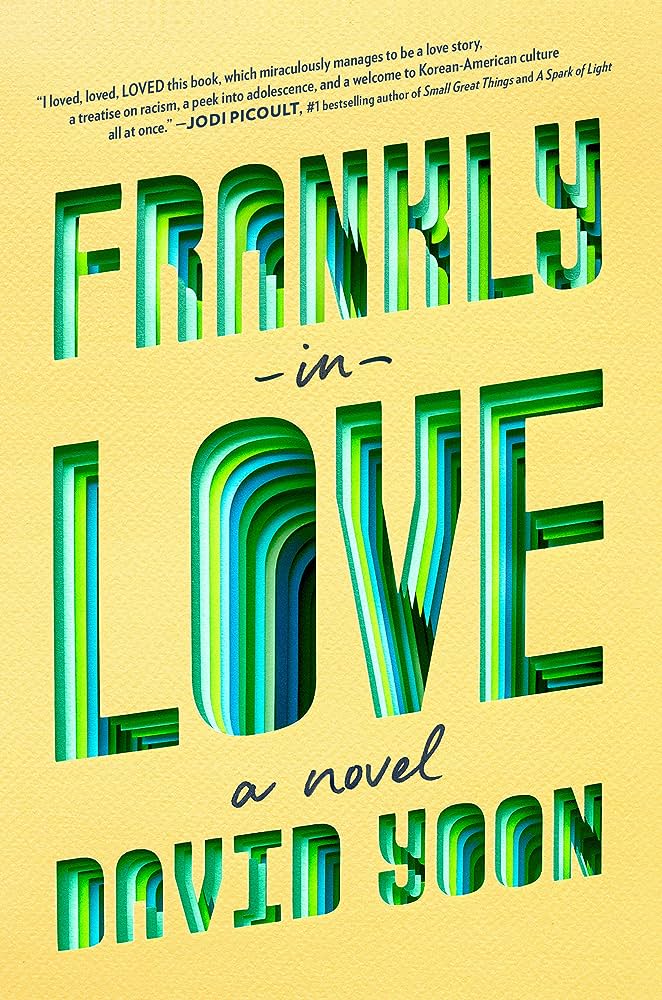
Frankly in Love is a young adult novel written by Korean American author David Yoon. While the plot is simply about the humor of high school romance, the deeper story is about culture, racism, and ultimately identity - something all human beings, especially teenagers, can relate to. The story feels personal and authentic perhaps in connection with the author’s own adolescent experiences. Frank is Korean by ethnicity, but American by nationality - something I can relate to personally. As a high school student, he faces cultural differences with his parents who only want him to date Korean girls. Frank likes a white girl named Brit Means in his class and they end up dating. He decides to hide his relationship because he doesn’t want to disappoint his parents. Instead, he “fake” dates a Korean friend named Joy Song. However, he soon realizes his real feelings towards Joy.
Jeong is a Korean word that does not exist in English. It is because American culture doesn’t quite contain this concept. Author describes the word as “something like bonding or affection. I mostly understand it as shutting the hell up and just being together.” A good example of this would be to describe complex relationships with family or old friends. Even if we don’t like every part of them, we are stuck together, bonded for better or for worse. Personally, I feel this jeong in my own life with extended family members, old friends, and even family friends whom I’m not particularly fond of. Even though I may not like them, I still have feelings of care and concern for them because of a combination of history and loyalty.
In diverse America, many of us can relate when Frank says, “I feel like I am trying to be two people at once with two names.” I, myself, have two names: one in Korean and one in English. My family calls me by my Korean name but everyone else calls me by my English name. I am totally different at home due to my Korean identity. As immigrant children, it can feel like we live double lives: one for our parents, and one for the outside world. This experience is difficult to describe in a simple or concise way. It’s a culmination of experiences, feelings, and situations that can only be portrayed through a complex story. Even Frank’s story is just one story as there are more unique and diverse stories of identity crisis as immigrant children.
Reading Frankly in Love was a satisfying experience in that I felt recognized and represented, understood, and vulnerable. At a time when diverse representation matters more and more, I appreciate author David Yoon’s efforts in writing and publishing such a story. I would recommend this book to all young adults as the themes are universal, informative, and entertaining. But I would strongly recommend this book to any second generation immigrant student who would appreciate the ability to relate to a protagonist on a deeply personal level. This kind of reading experience is still a rarity in American young adult literature.
Check Out Frankly in Love at NBPL!